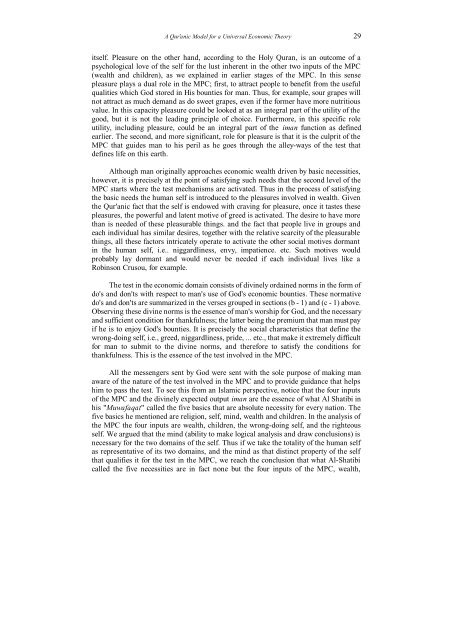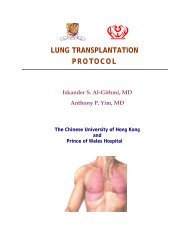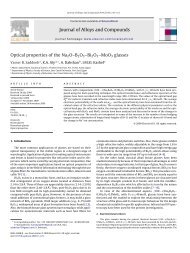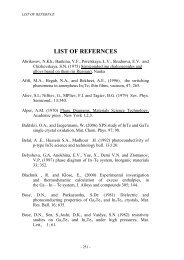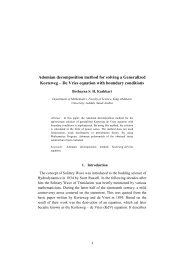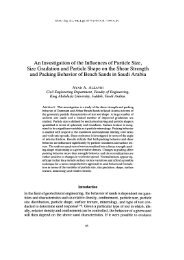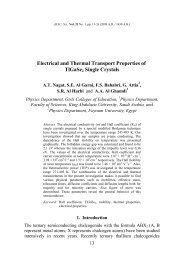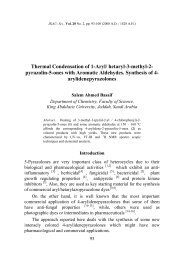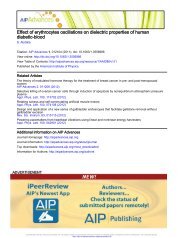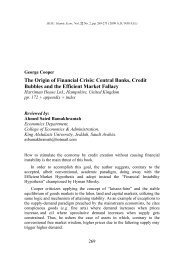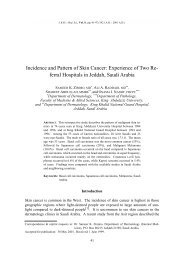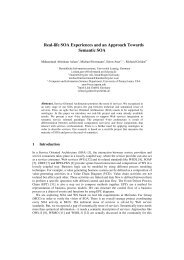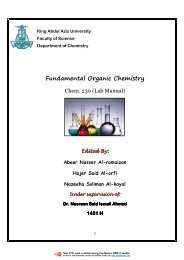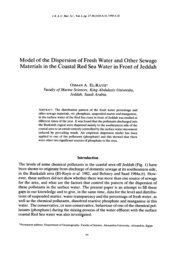A Qur'anic Model for a Universal Economic Theory
A Qur'anic Model for a Universal Economic Theory
A Qur'anic Model for a Universal Economic Theory
Create successful ePaper yourself
Turn your PDF publications into a flip-book with our unique Google optimized e-Paper software.
A Qur’anic <strong>Model</strong> <strong>for</strong> a <strong>Universal</strong> <strong>Economic</strong> <strong>Theory</strong> 29<br />
itself. Pleasure on the other hand, according to the Holy Quran, is an outcome of a<br />
psychological love of the self <strong>for</strong> the lust inherent in the other two inputs of the MPC<br />
(wealth and children), as we explained in earlier stages of the MPC. In this sense<br />
pleasure plays a dual role in the MPC; first, to attract people to benefit from the useful<br />
qualities which God stored in His bounties <strong>for</strong> man. Thus, <strong>for</strong> example, sour grapes will<br />
not attract as much demand as do sweet grapes, even if the <strong>for</strong>mer have more nutritious<br />
value. In this capacity pleasure could be looked at as an integral part of the utility of the<br />
good, but it is not the leading principle of choice. Furthermore, in this specific role<br />
utility, including pleasure, could be an integral part of the iman function as defined<br />
earlier. The second, and more significant, role <strong>for</strong> pleasure is that it is the culprit of the<br />
MPC that guides man to his peril as he goes through the alley-ways of the test that<br />
defines life on this earth.<br />
Although man originally approaches economic wealth driven by basic necessities,<br />
however, it is precisely at the point of satisfying such needs that the second level of the<br />
MPC starts where the test mechanisms are activated. Thus in the process of satisfying<br />
the basic needs the human self is introduced to the pleasures involved in wealth. Given<br />
the <strong>Qur'anic</strong> fact that the self is endowed with craving <strong>for</strong> pleasure, once it tastes these<br />
pleasures, the powerful and latent motive of greed is activated. The desire to have more<br />
than is needed of these pleasurable things. and the fact that people live in groups and<br />
each individual has similar desires, together with the relative scarcity of the pleasurable<br />
things, all these factors intricately operate to activate the other social motives dormant<br />
in the human self, i.e.. niggardliness, envy, impatience. etc. Such motives would<br />
probably lay dormant and would never be needed if each individual lives like a<br />
Robinson Crusou, <strong>for</strong> example.<br />
The test in the economic domain consists of divinely ordained norms in the <strong>for</strong>m of<br />
do's and don'ts with respect to man's use of God's economic bounties. These normative<br />
do's and don'ts are summarized in the verses grouped in sections (b - 1) and (c - 1) above.<br />
Observing these divine norms is the essence of man's worship <strong>for</strong> God, and the necessary<br />
and sufficient condition <strong>for</strong> thankfulness; the latter being the premium that man must pay<br />
if he is to enjoy God's bounties. It is precisely the social characteristics that define the<br />
wrong-doing self, i.e., greed, niggardliness, pride, ... etc., that make it extremely difficult<br />
<strong>for</strong> man to submit to the divine norms, and there<strong>for</strong>e to satisfy the conditions <strong>for</strong><br />
thankfulness. This is the essence of the test involved in the MPC.<br />
All the messengers sent by God were sent with the sole purpose of making man<br />
aware of the nature of the test involved in the MPC and to provide guidance that helps<br />
him to pass the test. To see this from an Islamic perspective, notice that the four inputs<br />
of the MPC and the divinely expected output iman are the essence of what Al Shatibi in<br />
his "Muwafaqat" called the five basics that are absolute necessity <strong>for</strong> every nation. The<br />
five basics he mentioned are religion, self, mind, wealth and children. In the analysis of<br />
the MPC the four inputs are wealth, children, the wrong-doing self, and the righteous<br />
self. We argued that the mind (ability to make logical analysis and draw conclusions) is<br />
necessary <strong>for</strong> the two domains of the self. Thus if we take the totality of the human self<br />
as representative of its two domains, and the mind as that distinct property of the self<br />
that qualifies it <strong>for</strong> the test in the MPC, we reach the conclusion that what Al-Shatibi<br />
called the five necessities are in fact none but the four inputs of the MPC, wealth,


